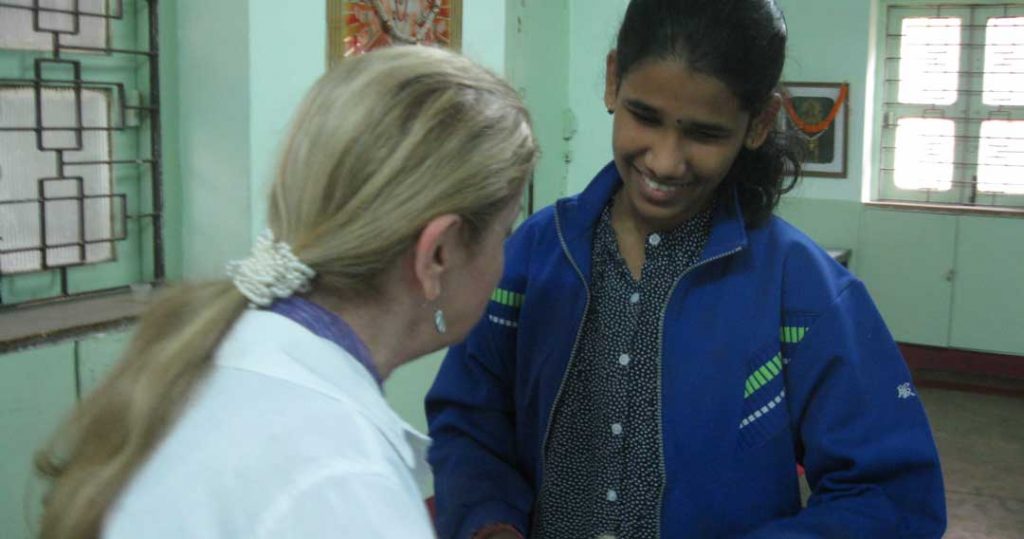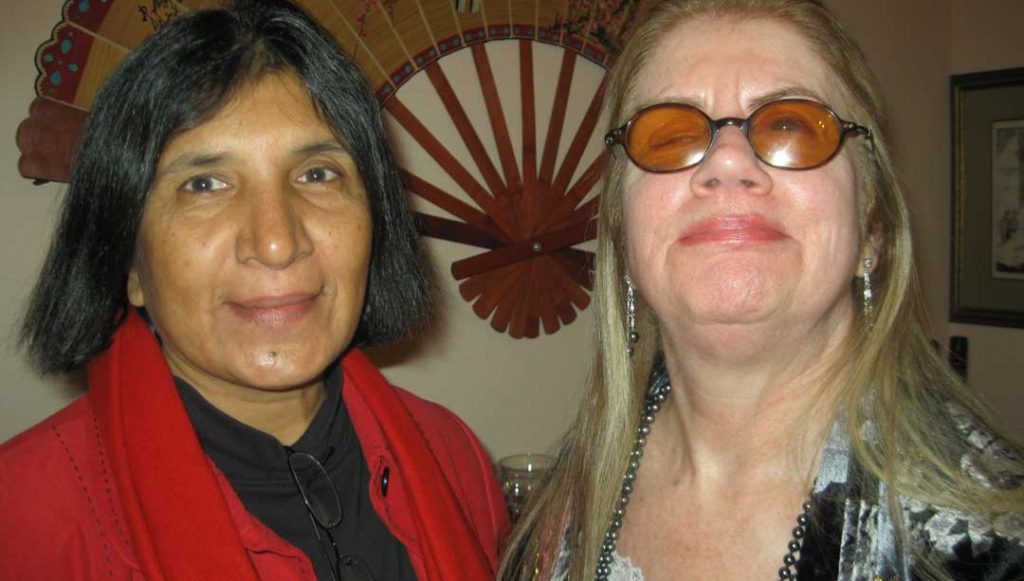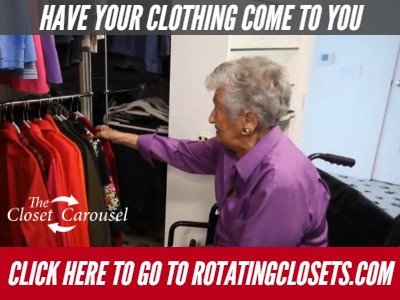With a resume spanning decades, Stephanie Ortoleva, Esq. has founded, headed or sat on the boards of more groups and organizations than one could hope to shake the proverbial stick at. A civil rights attorney and scholar by training, she served in the US Department of State from 2004 to 2009 as a Human Rights Officer and as the Disability Coordinator. During that time, she represented the US government at the negotiations of the United Nations Convention on the Rights of Persons with Disabilities (CRPD), worked in partnership with the UN and the Organization of American States, and advanced the participation of women and persons with disabilities in areas including peace-building and post-conflict resolution, economic development, violence prevention, environmental preservation and fighting infectious disease. In 2009, she received the prestigious Franklin Award for her work on human rights and was the State Department’s featured employee for Women’s History Month. And yet, as far as Stephanie was concerned, she was only getting started. Frustrated by the absence of intersectional initiatives for women with disabilities, she founded her own organization. Women Enabled International (WEI), incorporated in 2011, partners with grassroots organizations around the world to provide support and resources to women with disabilities and arm them with international expertise and legal tools. After serving for 10 years as WEI’s executive director and heading up projects around the globe, in 2021 Stephanie decided the time had come to pass the torch to the next generation. ABILITY Magazine’s Mekiya Walters spoke with her about making the world a little bit better for women with disabilities than it was the day before.
Mekiya Walters: What motivated you, as a young person, to pursue this particular constellation of interests: law, activism, scholarship and civil rights issues?
Stephanie Ortoleva: Well, I was born with low vision and gradually became blind, so a lot of it was lived experience. I have a degenerative condition called congenital glaucoma. Basically, there’s too much pressure in my eyes, and that caused damage to the retinas and the optic nerve. Nowadays, they have surgical techniques for it, but back then, there was nothing the doctors could do.
I grew up in a suburb of New York City, and I was one of the first blind people in the community to go to a “regular” school, as opposed to a segregated program for people with disabilities. That made a big difference for me. It gave me a sense of empowerment and made me feel that I was part of the mainstream community. I’ve retained that feeling all my life.
My parents were very supportive. Very loving. My extended family was another story, but they didn’t have much say in raising me. In my early years, I didn’t experience much discrimination. When I got to high school, there was one teacher who told me, quite bluntly, “You really shouldn’t go to college, you know. You’re just a blind woman.” That upset me! Of course, I went to college. No one tells me what I can’t do. I met some very supportive professors, I worked hard, I did well, and years later, here I am.
Mekiya: Here you are! That would’ve been—what? The ’70s? There wouldn’t have been much assistive technology available then. How did you navigate the education system? Were you mainly using Braille?
Stephanie: I never actually learned Braille. Earlier in life, I wasn’t totally blind, and I’d always find myself cheating by looking at the dots whenever I tried to learn. Turns out that wasn’t very productive! I just read large print until I couldn’t anymore.
Mekiya: And then?
Stephanie: I taught myself to use screen readers once they came along. That made a big difference for me, personally and professionally. It was very, very liberating. I got pretty good with technology, to the point where my husband was the one asking me for help with the computer, and he has no visual disability at all. I’m not quite on the cutting edge like I once was, though; I’m one of the few people still using the old Window-Eyes program. At some point, I know I’ll have to teach myself JAWS because it’s the dominant program now, and Window-Eyes has mostly been discontinued. But the thought of tackling a new software right now, in the middle of starting a business, is a bit daunting.
Mekiya: Understandable. I want to talk about the business, but first, going back to your college years–
Stephanie: Yes. I graduated and worked a couple jobs, but at a certain point, I began to feel that the law was calling to me. There were people who discouraged me from leaving my established job and running off to law school, and I think they had good intentions, but again, no one tells me what to do. I went to law school.
Mekiya: To study international law?
Stephanie: Back then, most American law schools, including my own, focused only on domestic law. I studied constitutional law and civil rights law. International law came later, when I was working for the State Department.
Mekiya: Did they hire you straight out of law school?
Stephanie: No, I started with the US Department of Education, in an office specializing in civil rights–where I met my husband, actually. You know, office romance: that taboo thing that was strongly discouraged!
Mekiya: Wait, I want to hear more about that. Do tell!
Stephanie: Well, it’s funny, isn’t it? Once you reach a certain age, you’re either going to meet your partner through your friends or through your office. Work is such a dominant part of one’s life, there’s no point in trying to keep romances from occurring. My husband and I were very discreet, of course. Some of our colleagues didn’t even know we were living together. That went on for a couple of years!
Mekiya: So, you were in stealth mode, I guess?
Stephanie: Exactly!
Mekiya: Right. Okay, back to the State Department–
Stephanie: The State Department. I was getting more and more interested in international issues while I was working at the Department of Education, so eventually I found my way over to State.
Mekiya: What was your purview there? Were you working on women’s rights issues? Disability issues?
Stephanie: Human rights. Which is a pretty broad umbrella. One day, I’d be working on women’s issues, and the next I’d find myself working on disability issues. After a while, I began to notice how the work on women’s issues rarely included women with disabilities, and the work on disability issues rarely included women. At a certain point, I decided to leave that job so I could drill down on the intersection of gender and disability.
Mekiya: Was that when you founded Women Enabled International (WEI)?
Stephanie: Exactly.
Mekiya: I’m curious, since we’re an international magazine, about the international trajectory your career has taken. How does your international perspective inform your work?
Stephanie: I think it’s essential to approach any kind of international collaboration as a cooperative effort, not as something dictated by me or anyone else here in the Global North. The concerns that I have, as a blind woman in the US, are going to be very different than those of, say, a blind woman in Guatemala. We were always committed to approaching our partners as the experts on the situations in their countries because, if you’re in Uganda, you’ll know a lot more than I do about what’s going on in Uganda. Obviously. We weren’t there to tell them what to do. We were there to provide them with resources.
Mekiya: What kind of resources?
Stephanie: A lot of it was legal guidance. We’d help them identify whatever leverage they had and how to apply it. Basically, we’d teach them how to work the international system. We’d also mediate conflicts sometimes. For example, in one country, there was a conflict because the disabled women felt they weren’t being included in what the disability rights movement was doing at the international level. We supported the women and made sure they had a seat at the table.
Mekiya: Did you collaborate with third parties?
Stephanie: We’d often work in partnership with the United Nations. Whenever a government ratifies a treaty–not something we’re all that familiar with here in the States; we still haven’t ratified several important human rights treaties!–that government comes up for review every few years by the body that supports the treaty. Sometimes, we would work with our colleagues in other countries to help them prepare and submit shadow reports to the treaty body.
Mekiya: What’s a shadow report?
Stephanie: The government has to submit a report, but the public can send the treaty body one of its own, which is called a “shadow report” because it sort of shadows the government’s report. International collaboration is especially important here because it makes it harder for hostile governments to intimidate their critics or suppress information that might cast a negative light on them.
Mekiya: I think you were alluding just now to how the US still hasn’t ratified the CRPD. What impact has that had, if any, on your work with WEI?
Stephanie: Not much because our focus is global. We’d occasionally prepare reports on things going on in the US, but that’s really not the focus of our work. That said, it’s disappointing, infuriating, mind-boggling that the US hasn’t ratified that treaty! Especially since we were so active in drafting it.
Mekiya: You were one of the delegates, weren’t you?
Stephanie: Yes. When I worked at the State Department, I was part of the US governmental delegation that negotiated the CRPD.
Mekiya: What was that experience like for you?
Stephanie: It felt a bit strange, to be honest, because I was officially representing the US government, but in my heart of hearts, I was more on the side of the activists. I met a lot of activists there because it was one of the first major treaties where a lot of non-governmental organizations were actively involved in the negotiations. I also got to meet with leaders from some other governments, which, frankly, were far more supportive of disability rights than our own.
Mekiya: How did the negotiations work? How were compromises reached and decisions made?
Stephanie: As with most negotiations, there was the formal part, where nothing much really happened. Representatives from different governments would get up and give prewritten speeches. And then there were the informal negotiations–the backroom conversations, if you will–where the real work got done. That’s where we’d make each other promises, haggle over compromises, trade power, if you will.

Mekiya: Since then, have you witnessed significant changes in the international disability rights movements, especially with regard to women with disabilities?
Stephanie: Nowadays, there are many more organizations focused on disability issues than there used to be. That’s happening all over the world. And more of those organizations are run by women and focus on women’s issues. It seems to me that women with disabilities are really beginning to claim their share of power in the world. In more and more countries, we’re making our voices heard.
Mekiya: That encouraging. How do you think it’s manifesting in day-to-day life, at the grassroots level?
Stephanie: Hard to say because it’s different everywhere you go. In my personal experience, when I went to law school, and even when I first started teaching, none of the law students had ever met anyone with any sort of disability. At least not that they knew of. As time’s gone on, especially in the last several years or so, it seems like that trend has almost reversed. Pretty much every legal intern who’s worked with me recently has had some kind of prior experience. Most say they’ve had classmates with disabilities. Maybe it’s just selection bias–after all, they’re the ones who chose to work with me–but still, it’s encouraging.
Mekiya: Does that change the dynamic in the classroom?
Stephanie: It changes the comfort level. Nowadays, the non-disabled students and interns seem a lot more comfortable working with me. They’re not so timid. They’re not walking on eggshells all the time. That’s good because we don’t have to spend so much time figuring out boundaries. We can just dive right in and get more work done.

Mekiya: Do you think there’s been a corresponding shift in media representations of persons with disabilities? Or is the media still behind the curve?
Stephanie: Definitely still behind the curve. There’s very little attention paid by the media, in the US or internationally, to disability issues. Especially where they intersect with women’s issues. At WEI, we made some efforts to reach out to mainstream media outlets to get these issues covered, and we found that it’s extremely difficult to penetrate the mainstream media sphere. Maybe they’ll do some cute little story on International Disability Day, but even then, they’ll end up applying some outdated framework, like the medical model. They don’t seem to think there’s any appetite whatsoever for—well, for what we’re doing now. A deep, probing interview.
Mekiya: Speaking of the medical model and problematic frameworks, how do you feel about the terms we use to talk about these issues? Words like “disabled” and “non-disabled”?
Stephanie: I’m troubled, frankly, by the language we use. “Disability.” “Handicap.” They’re not very positive words. They’ve been imposed on us by the outside world, so that’s problematic, but even when we choose our own language, there aren’t really any easy answers. For example, with person-first language, you’re supposed to say “person with a disability” instead of “disabled person.” But for disabled women, it gets a bit trickier. Whichever one you put first, that’s the identity you’re emphasizing. So, are you a “woman with a disability,” or are you a “disabled woman”? There’s a lot of disagreement around that.
Mekiya: Where do you come down on that? Which do you put first?
Stephanie: It depends. In some circumstances, my gender has a greater impact on the interaction. In others, it’s my disability. I thought about that a lot when I was founding WEI. I knew I didn’t want to call it “International Disabled Women” or something like that. I went with “Women Enabled” to put the emphasis on what we can do.
Mekiya: I guess you’re probably going through that process all over again, now that you’re starting a consulting business.
Stephanie: Yes. By the way, I want to say something about why I left WEI. My mother used to have this theory that, every year, on her birthday, she ought to find one new friend who was one year younger than the youngest friend she already had. That was how she kept up with the younger women. She taught me how important it is to connect with young people and draw from the strengths of the upcoming generations. That’s why I left WEI. As the founder, I was always going to have a lot of influence and power in that organization, and I didn’t want my objectives and ideas to overshadow those of the younger leaders. I think it’s vitally important that they’re not just involved with this work, but also empowered. Without young leaders, the movement will die.
Mekiya: You don’t hear that very often. I really appreciate it, actually. From where I’m standing, as a Millennial, it does seem like we’re more often shut out of power. But at the same time, you’ve got a lot of experience and institutional memory that younger people don’t have, and you need that to accomplish anything of substance in the world. Are you also finding ways to pass that on?
Stephanie: That’s why I’m starting the consulting business, so I can keep working on the issues I care about and passing on knowledge to anyone who wants it or needs it. I’m still figuring out exactly how it’s going to work, but I know the primary goal is to help individuals and organizations understand what disabled women and girls have to offer and how to include disabled women in their work.





